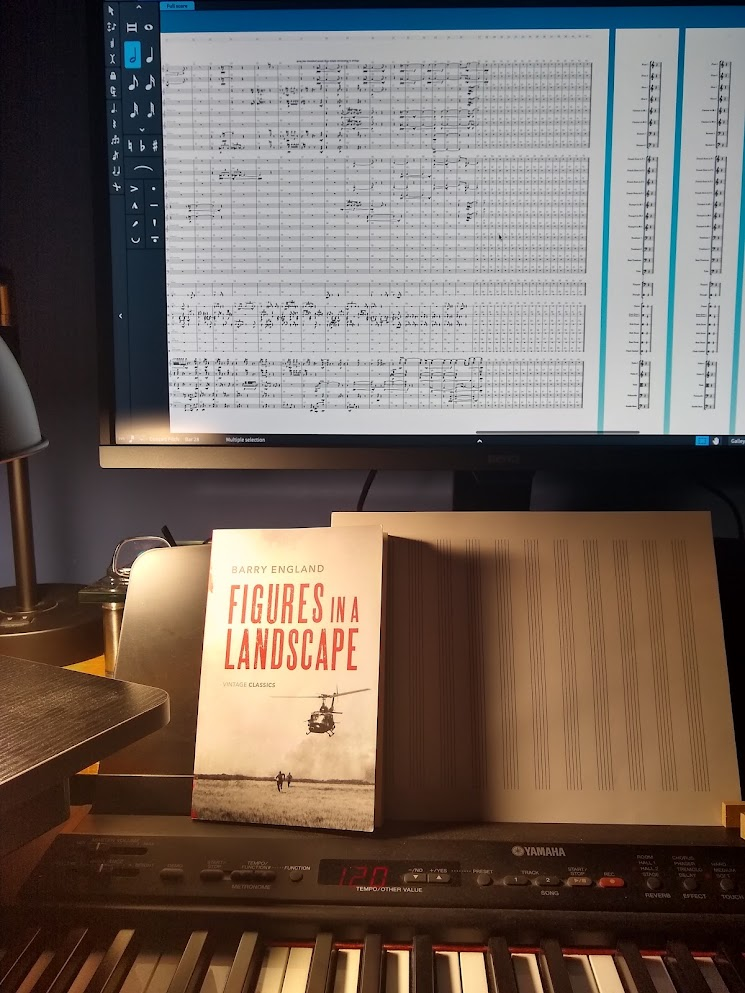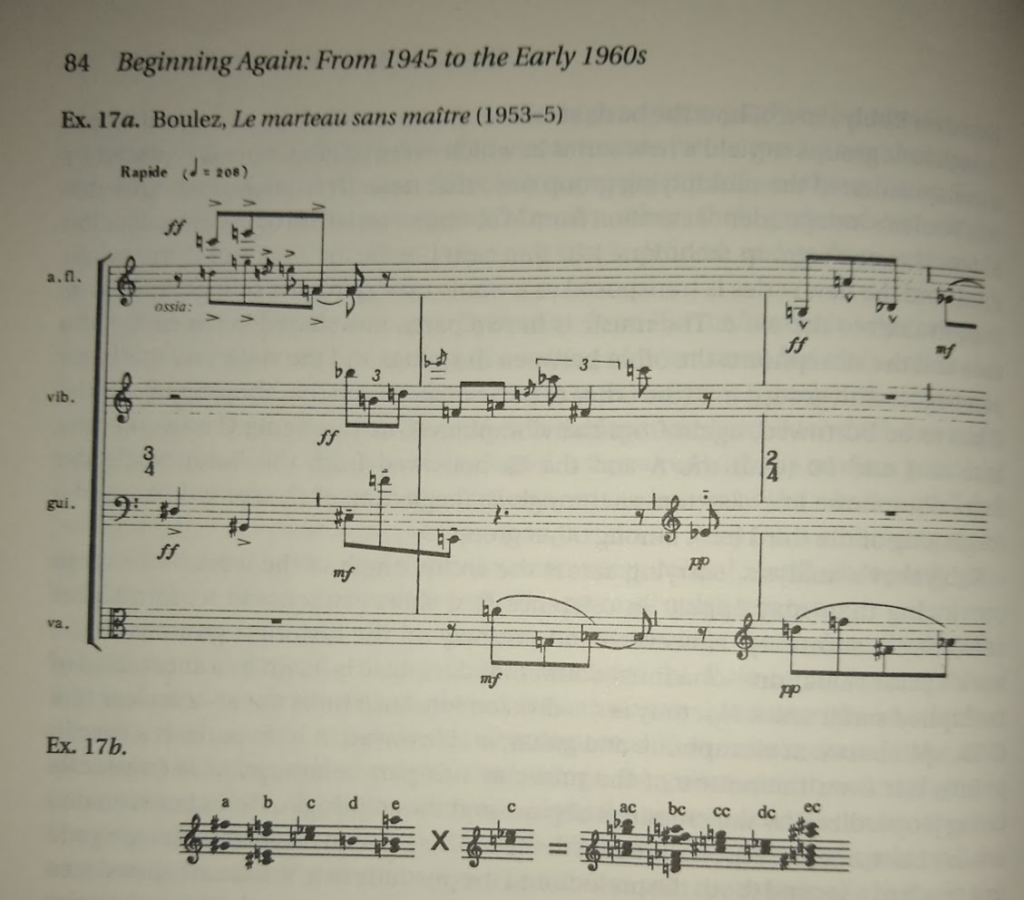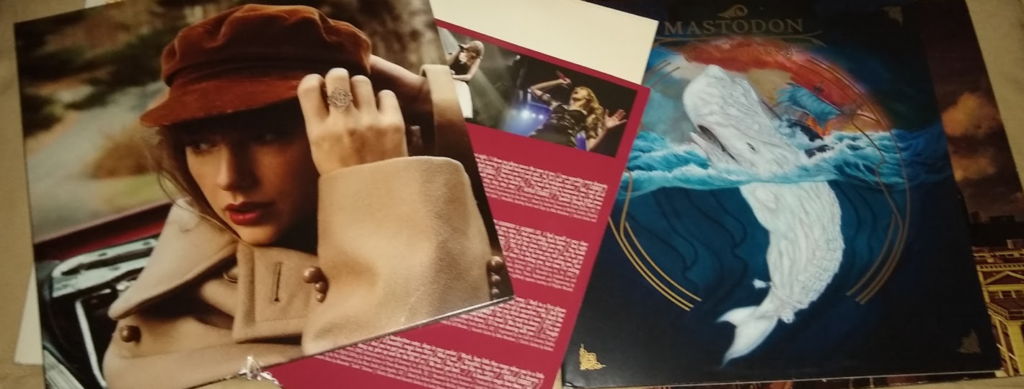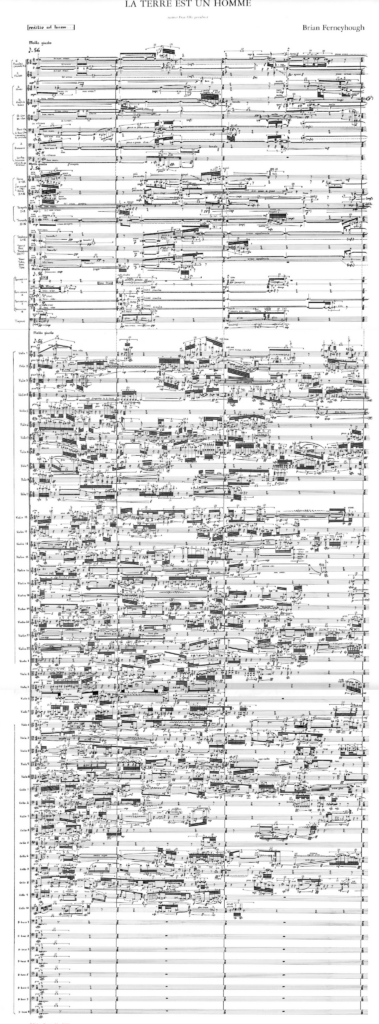
(I’ve written too much before about the emotional difficulties of writing and how Doubt Creeps In. It is very much a battlefield of personal confidence w/r/t creativity and that of perceptions of art and nonart. “Am I expressing myself or just lazily-but-with-effort generating noise?” Such questions press down, excel at pressing down, and are unfortunately dogged while pressing down. So I’m writing too much now about that again.)
Working non-tonally, I frequently use various processes as frames for constructing a work or sections of a work. Over the past year or so much of what I’ve read w/r/t music theory includes descriptions and analysis of modern composers who wrote very process-heavy works–Boulez within his book of essays Orientations, Ferneyhough from his essays in Collected Writings and Richard Toop’s analysis of Ferneyhough’s work, referenced here and here. (I found Collected Writings for sale once for $1,300 ((and so promptly downloaded a bootleg PDF for free)) but right now the physical book is no longer available anywhere for any price no matter how absurd.)
A small fragment of Lev Koblyakov’s analysis of Boulez’s Le marteau sans maitre included in Pa`ul Griffiths’ book Modern Music and After is below. It shows how Boulez permutated note groups using a secondary interval, which was itself pulled from the the source group. Boulez wrote no explanation describing his process, and so Koblyakov had to unearth it on his own. Griffiths’ marvels:
[Koblyakov’s] analysis, carrying across the entire length of the work, is far more convincing than may appear in reference to a short extract, and its formidable detail defies summary.
Earlier in the Griffiths book, he brings up the “grammar and vocabulary” of Boulez and how he strove to define a grammar as foundation-but-with-freedom. My processes are never so abstruse as described here but, getting back to the point, I think process like this–with license to break that process when personal aesthetics require–is needed, especially when tonality is abandoned.

I’ve always recommended Marcia Muelder Eaton’s book Art and Nonart (and I mean always) as the definitive philosophical stake-in-the-ground of that classical question. Spoiler: art is what we approach as art, although that’s conceptually cheap for me to provide as a summarization. Art is how you choose to look at a subject, and so, is a choice of how you look at any thing presented to you. The canonical example from Eaton’s book is the crate of oranges (iirc?) surreptitiously placed in the middle of a modern art exhibit. If you analyze it and find intellectual or emotional interest, are you duped?
I learned the critical phrase “assume intent” from one of my art teachers–don’t remember who–and it has stayed with me and has resonated as a key approach to analysis ever since college. When analyzing a work, you can get wrapped up in they-tried-to-do-this-and-failed or somesuch judgement that, somewhat, unfairly tries to parse the intent of the artist instead of seeing the final product alone as a representation of their intention. We can later learn that one of the finer qualities of a work was actually an accident or conversely that one of the flaws was planned from the start. These are discoveries that are edifying in order to get a understanding of process and the evolution of the work, but they are secondary to experiencing the work.

I started writing Figures 11 May 2022 and so this is the slowest I’ve ever worked on a piece. For good or ill. I can blame it on the ever-present Doubts that Creep In or on the new job taking my focus or on the rusty-ness of returning to orchestral writing after two years. When I re-listened to the Symphony maybe a year after writing it, I was surprised at how thin the orchestration sounded (something something something about intent). I don’t expect to present the over-fullness of Ferneyhough, but would still like to create a fuller sound all the same. Maybe I need to take a lesson from his ruthless example?

Further thoughts from others:
- Why Write? by Elisa Gabbert
- Into the Maelstrom by Jared Marcel Pollen